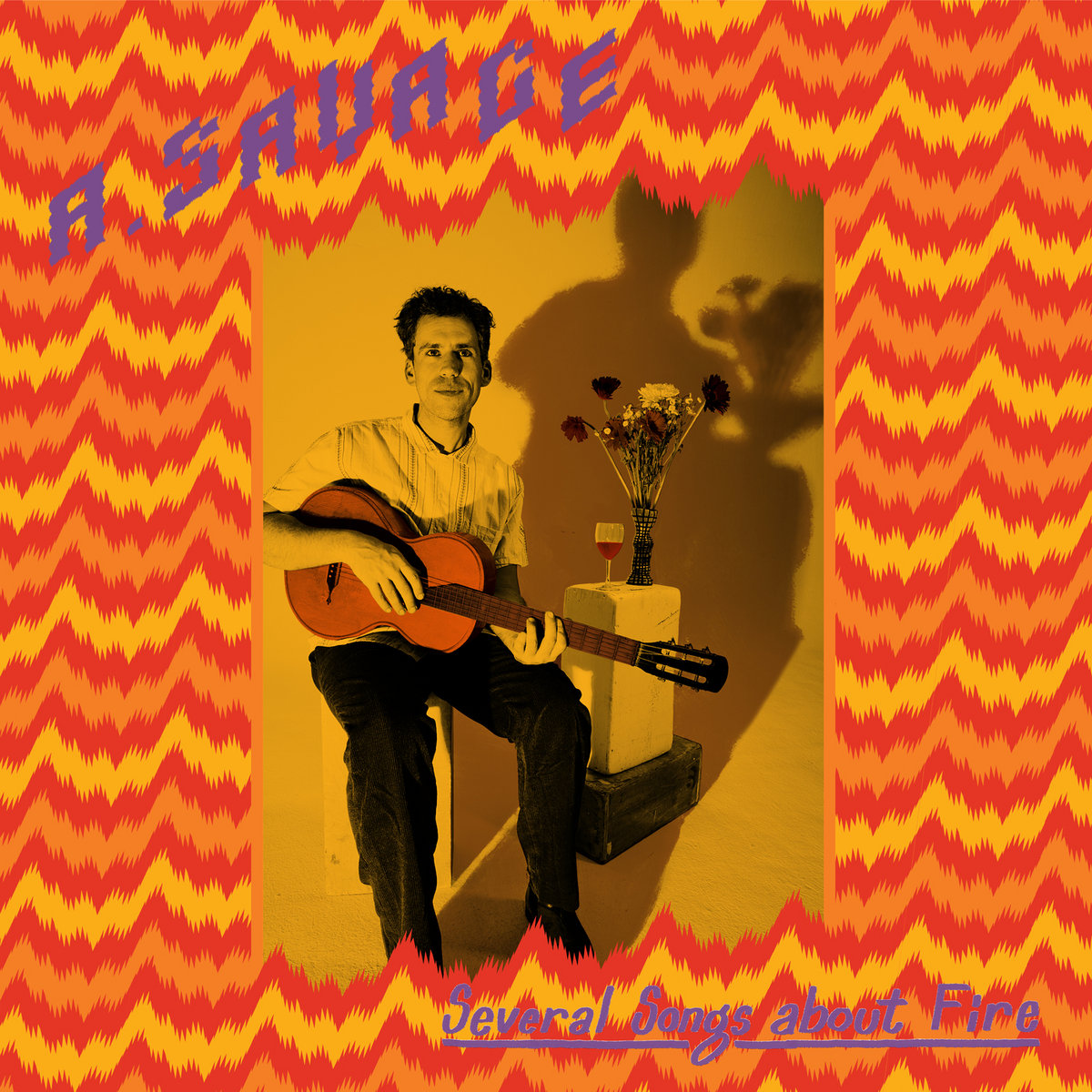A. Savage
Several Songs About Fire
ROUGH TRADE
Andrew Savage is best known as the gutsy, bombastic torchbearer of American post-punk with his band Parquet Courts. The group encourages him to embody a relentless take-no-shit personality that perfectly complements their disdain for capitalism, commercialization, and any other social constructs that are increasingly becoming antithetical to our everyday existence. Yet they’ve never been ones to solely focus on outpourings of emotion, instead opting to write sharp, observational lyrics which prompt you to question the world around you.
When diving into his solo career, A. Savage takes a much different approach, which we first encountered on 2017’s Thawing Dawn. For his second solo album, Several Songs About Fire, Savage has taken a back-to-basics approach, with most tracks being distilled to just an acoustic guitar at conception before being fleshed out in the production stage.
Having moved out of NYC (and the US entirety), it’s been a time of change for Savage, where any comforts have been shaken off for the embrace of something new—which he found in rural England. Leaving behind New York is directly addressed on “David’s Dead,” named after a homeless neighbor’s passing. It feels like you’re witnessing a time lapse of his whole neighborhood narrated with the knowledge and experience that only an embedded local could provide and propelled by repetitious electric guitar and drum loops to really give a sense of journey. Meanwhile, “Hurtin’ or Healed” seems to be the track most influenced by Savage’s move. Composed of a slow progression of acoustic guitar notes, the piano keys seem to sneak up on you while the folky strings that creep in provide an added sense of wonder on a track expressing a constant flow of epiphany.
Whereas Parquet Courts’ lyricism is more straightforward, there’s a lot of abstraction to be found on Fire. “When I get misplaced, I forget the name that I’ve answered all my life,” Savage sings on “Le Grande Balloon,” which itself feels like a puzzle box of sounds that could make up a complex museum display. The album’s middle section is the moment where people could switch off a little. “My My My Dear” fails to capitalize on Savage’s vocal distinction, instead forcing him to a single tone throughout, slowing the momentum. “Mountain Time” similarly suffers when the tempo is reduced to a crawl, yet features some of Savage’s best lyrics on the album.
There’s a brilliant mixture of personality and perspective throughout Fire, and Savage gives the listener plenty to think about (Cate Le Bon also makes appearances throughout the album, and you can’t help but feel her hand in some of the subtle textures enlightening the personalities within each song). With themes of escape, attachment, and finding meaning, he provokes the listener into deep thinking rather than laying down absolutes, which exemplifies his talent for finding the right balance in his lyricism. One of the most obvious examples of this is on “My New Green Coat,” where he states: “Reasons to stay in boxes, safe from the risk of belonging.” It sparks questions about the conflict embedded in whether or not we allow the things we love to flourish, and you can hear the tenderness and care ooze out of Savage’s voice.
Several Songs About Fire may not be perfect, but it’s the type of album where you’ll pick up something new upon each listen, such is the deftly rewarding writing.







